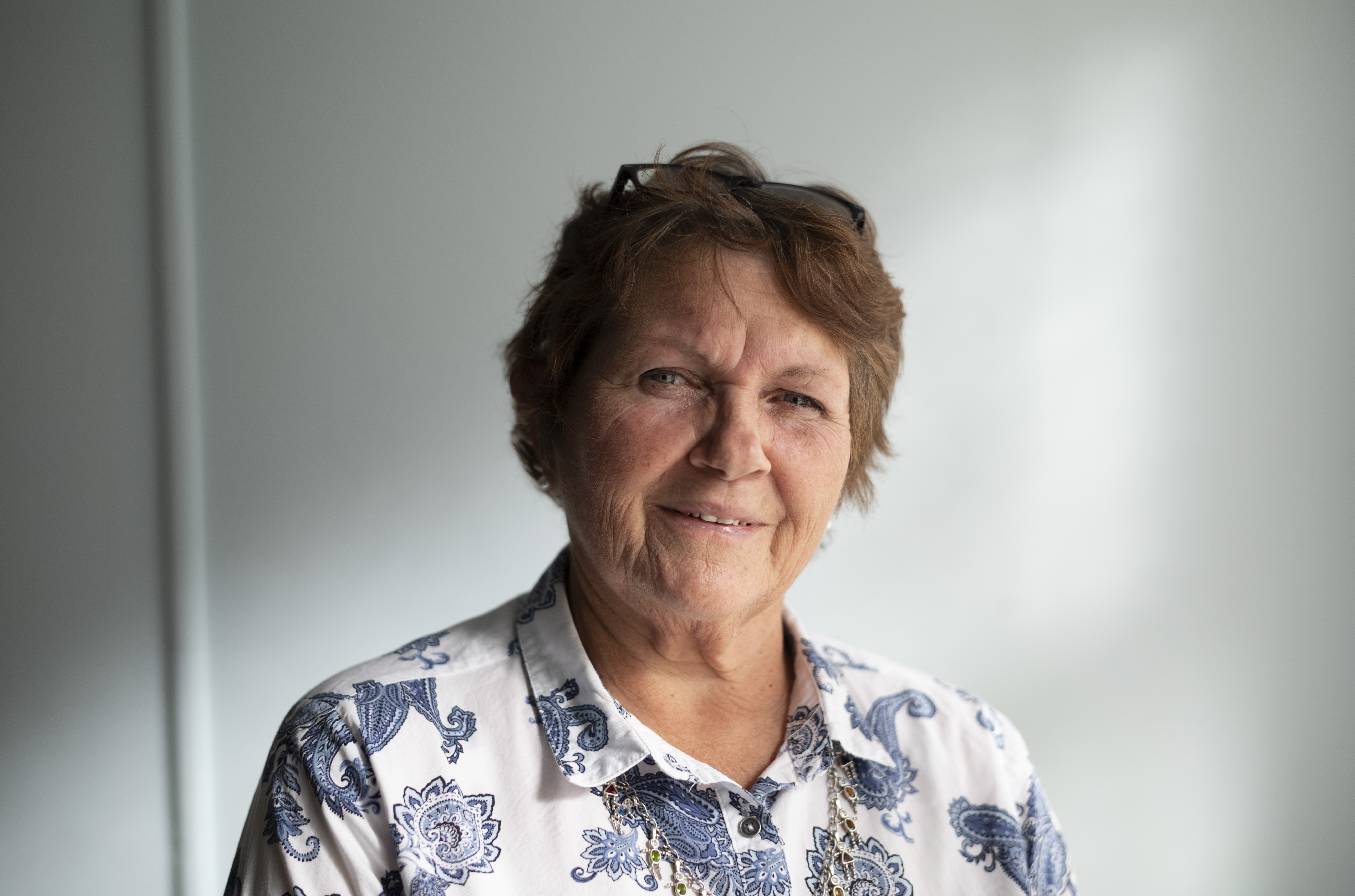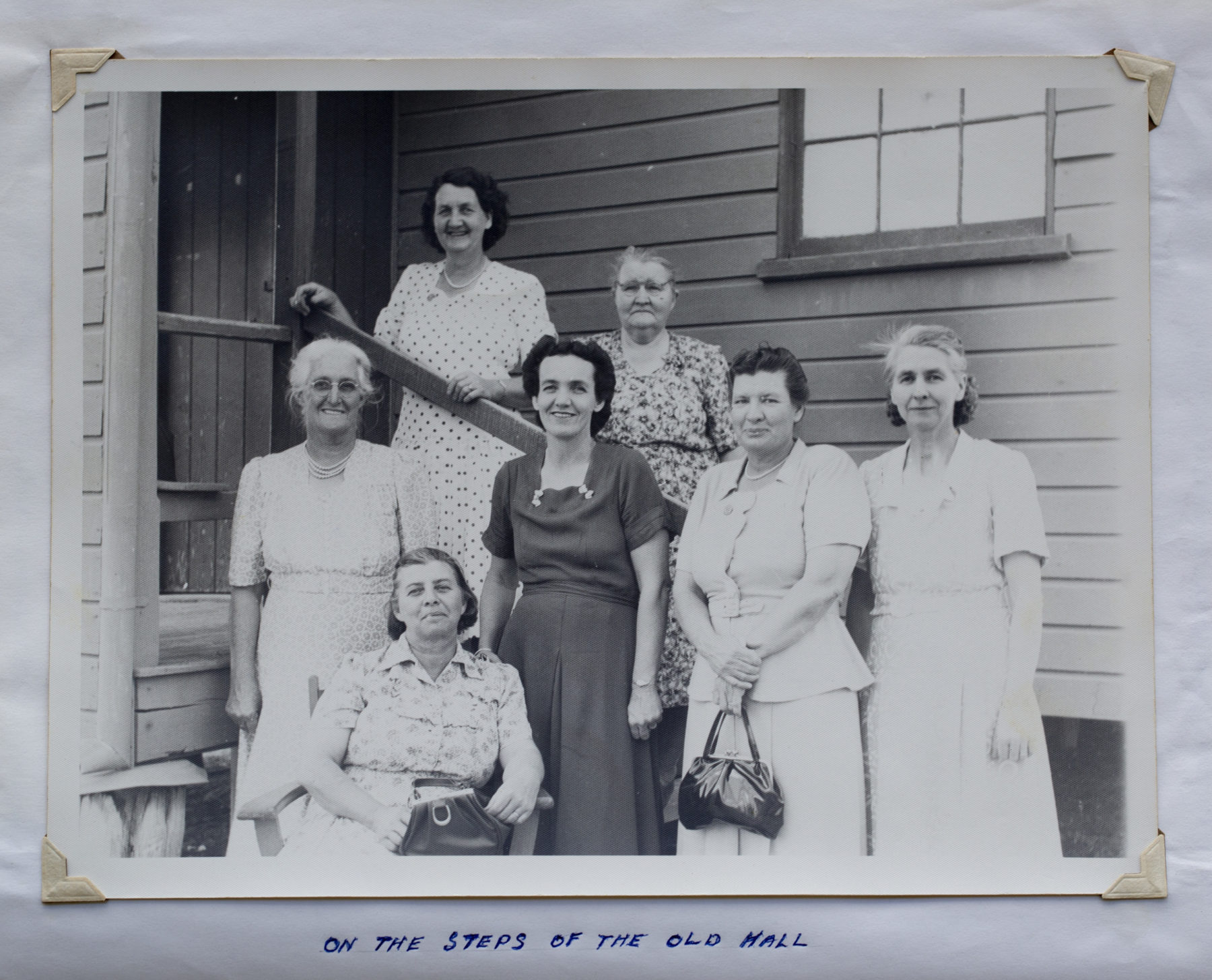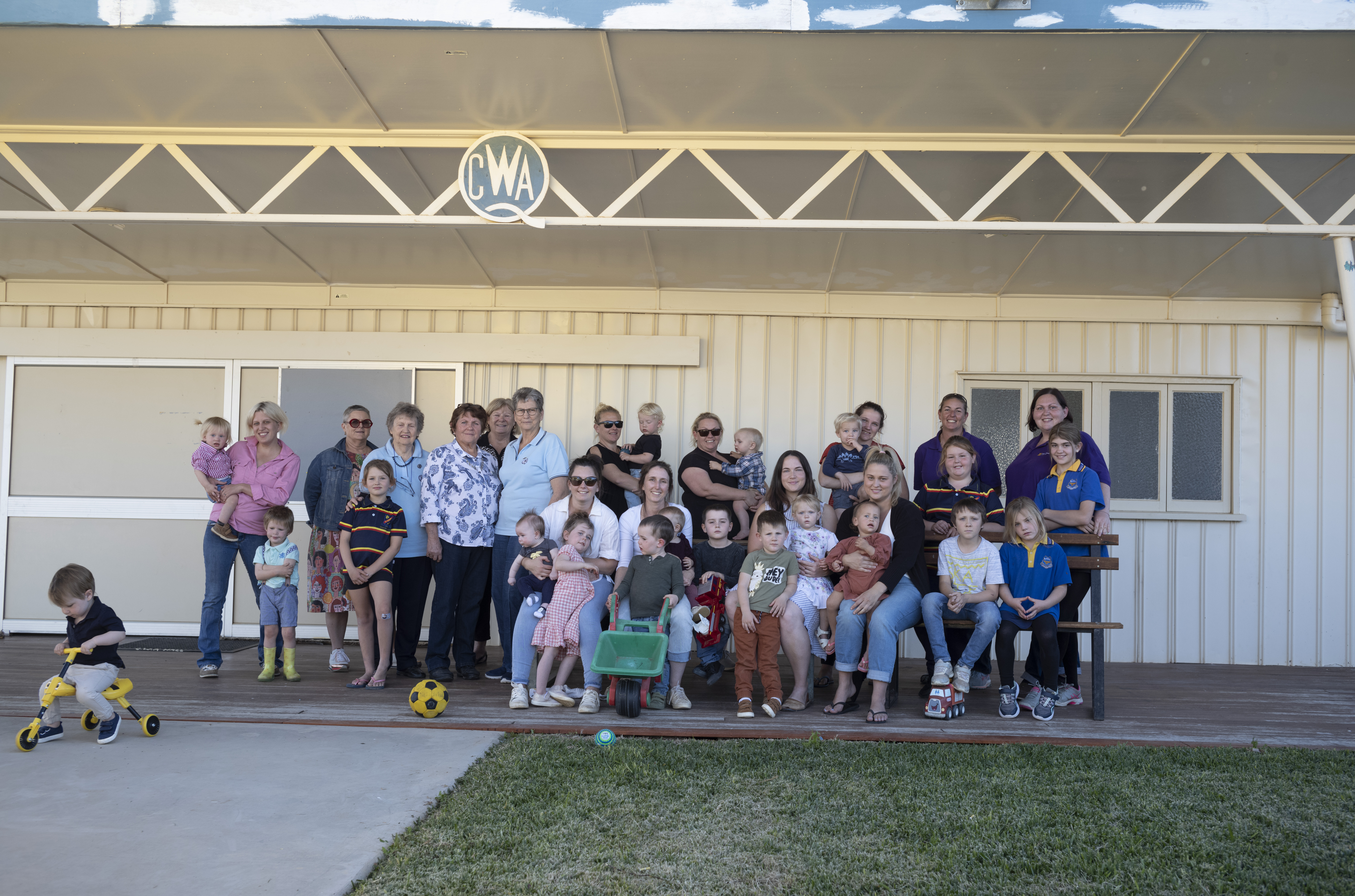Just off the main street of Blackall in western Queensland is a humble timber-clad Country Women’s Association (CWA) hall. As you step into the cool of the building, a young Queen Elizabeth II watches from a faded photograph. Either side is CWA’s creed and motto, which is recited at every meeting:
Honour to God Loyalty to the Throne Service to the Country Through Country Women For Country Women By Country Women
It may sound dated, but the heart of the Blackall CWA, which has been beating steadily for almost a century, shows no signs of ageing. Almost every country town in Australia has a CWA. These institutions are certainly beacons of domesticity, but they represent so much more than who can bake the lightest scones or create the fanciest embroidery. For decades they have provided safe spaces for female fellowship and conversation, supported fervent advocacy and engaged in vital charitable fundraising.
During the past 100 years, the Blackall branch, one of 220 in Queensland, has had its fingers in many pies. In the 1950s, to improve maternal and neonatal health outcomes, Blackall’s CWA established a hostel in town for expectant mothers from remote and regional areas, bringing them in from the land and closer to medical attention ahead of their impending labours. More recently, the branch was tasked with distributing government drought relief funds among Blackhall’s approximately 1000 residents – a testament to their good standing in the community. Many other branches around the state did the same.

But Blackall branch president Avril Fazel says their group’s greatest achievement has perhaps been simply “surviving”, while other local community service groups such as Rotary and Apex have successively folded. At one time, due to dwindling memberships, it looked as though the Blackall CWA would have to close its doors for good too.
Today, the hall is abuzz with people. Avril strides across its polished floors, worn down by years of heels and boots traipsing in and out of meetings and gatherings. She greets each woman by name, scoops up children for a cuddle, and checks in with the veteran members making tea in the kitchen.
It’s the young mothers, affectionally referred to as the “younger set” by some older members, who’ve revitalised the group. Avril moves outside to the fenced front garden where these mums stand in small clusters, bubs in arms, swapping stories about the week that’s been. Some have travelled as far as 150km across gravel roads from outlying properties to attend the Barcoo Bumblebees, a CWA-hosted playgroup. A toddler pushes a bright green wheelbarrow over lush grass, stopping every few metres to collect smaller toys to fill it. Another child hoons around a concrete slab on a tricycle, while others picnic on the lawn. Avril surveys the scene.
“When you help women, you help the whole community,” she says simply. “There’s still not equality for women, but when we band together, we can effect change. And when new women come to town, we can include them, we can welcome them.”
Alison McNall, a grandmother and CWA member of 50 years, arrives on her bicycle. Parking it at the gate, she quickly checks the branch’s community street library that sits atop a 44-gallon drum painted in the Queensland CWA’s “true blue”. Avril beckons her over and before long she’s sharing her own stories of the Blackall branch’s glory days, such as the time she applied for her bus licence, despite express disapproval from some local men. She merrily drove fellow members across vast distances to visit other branches, while her baby son was passed from lap to lap, up and down the bus.
For mother of two, local schoolteacher and branch member Lisa Alexander, times may have changed, but she’s joined the CWA and its playgroup for many of the same reasons the founding members did. “It’s a safe place where I can connect with women, both young and old, to ask advice and share strategies around parenting without judgement,” she explains. “It also provides opportunities for networking, giving back when we can and supporting country women. Mental health services are scarce out here; groups like this that generate interest and events are so important because otherwise there’s not much that brings us together.”
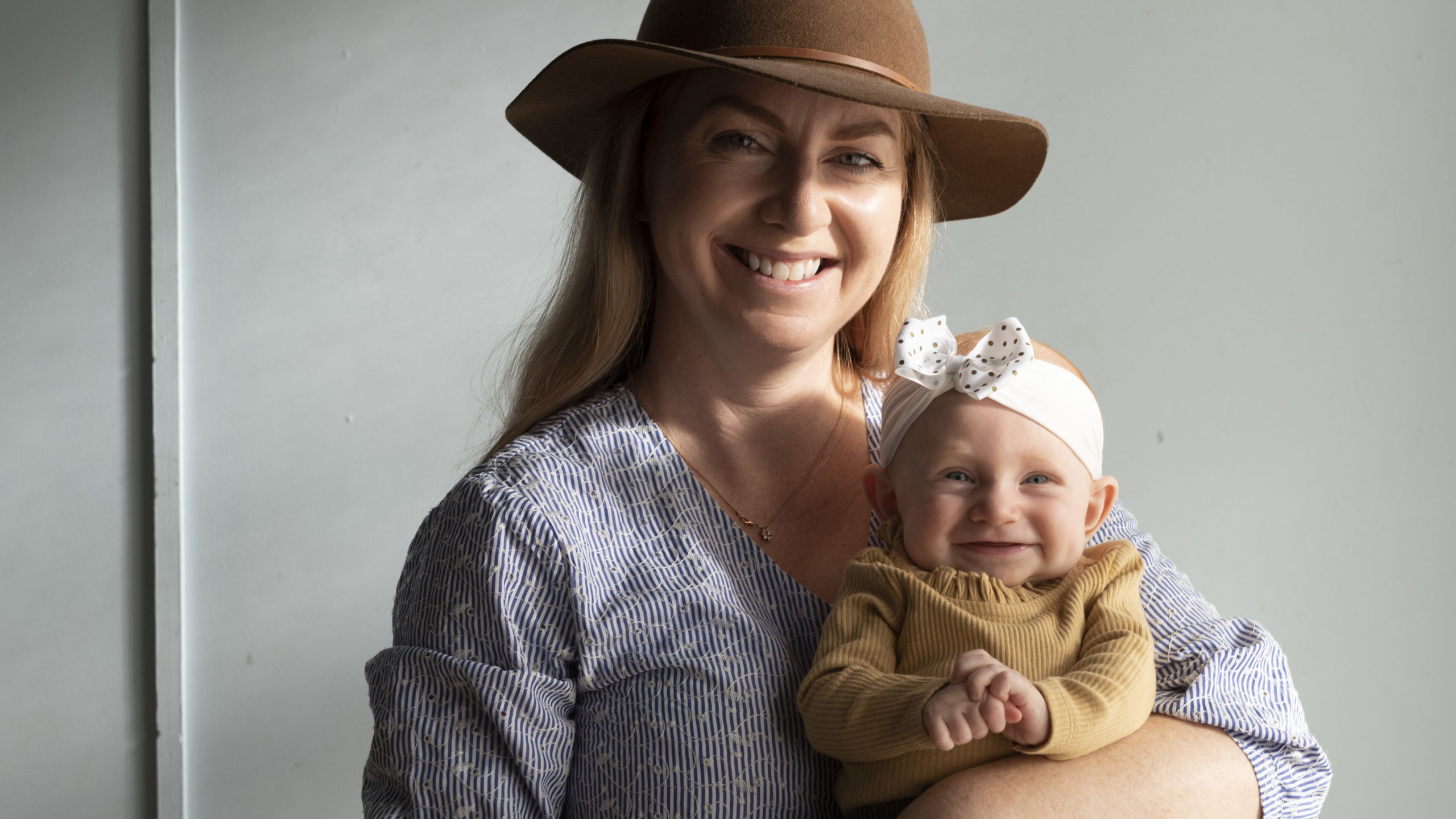
Just an hour’s drive from Blackall, the Tambo CWA runs a well-attended playgroup that caters for the town’s baby boom. Operating from a room in The Royal Carrangarra Hotel, the branch has an enviable contract that leases them the space for a shilling a year for 99 years, thanks to the generosity of former pub owner Ernest Edwin Parr. That equates to about 10 cents a year now to rent a large room with a kitchen and bathroom.
Carroll Abel, Tambo CWA secretary and mother of four, says the story goes that a group of founding women first met under a shady tree in the heat of an outback summer in 1924.
Today, you’ll still find CWA women gathered under the established trees in the EE Parr O.B.E. Park, which sits next to their leased room. It may only be a small town of about 400, but there are plenty of mums from all walks of country life at this weekly playgroup. From townsfolk to station owners, they meet with the common goal to give their children and grandchildren the opportunity to socialise and practise their motor skills on the play equipment.
Carroll says the playgroup is just one of many activities her branch coordinates. “We’ve hosted an Oktoberfest in the past and men’s mental health days. Looking after our own people in Tambo is really important, because we’ve only recently emerged from 13 years of severe drought,” she says. “We make it our goal to do things that are accessible to the community, to ensure everyone is still gathering and knowing we’re all here for one another.”
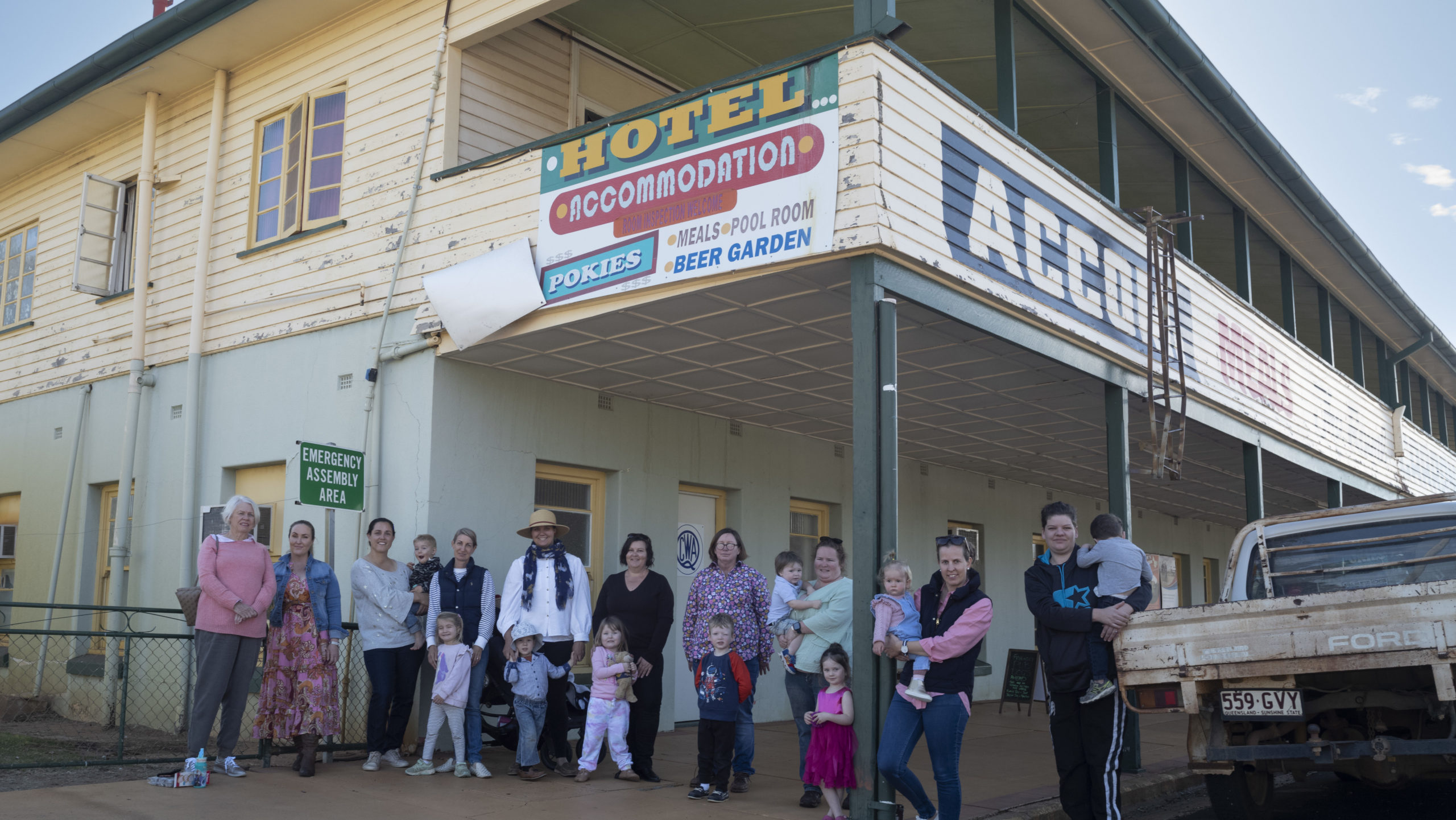
In the late 1940s, the Tambo CWA also opened a hostel for children, enabling them to attend school in town and return home to their properties on weekends. This was needed because, between home and school, vehicles would frequently get bogged in the region’s notorious black soil after rain. In the 1970s, the introduction of school buses, along with road improvements, led to the hostel’s closure. Providing accommodation and health services for women and children, including places for seaside respite from the oppressive outback summers, was also commonplace for the CWA in its earlier years.
To document the entirety of the CWA’s achievements (and a few failings) would fill volumes, yet author Liz Harfull has attempted it – at least for one state. To mark the CWA centenary in New South Wales, the first state to open branches in 1922, Liz’s book The Women Who Changed Country Australia focuses on the indomitable women who’ve driven many campaigns for the betterment of families’ lives in rural areas.
“In lots of ways the CWA in NSW today is similar [to its roots],” Liz says. “Many of the issues they focused on in the first couple of years are still cause for concern. Poor communications, bad roads, bad public transport, bad health services, inadequate education. The technology’s changed a bit, but the issues, they haven’t gone away.”
The women of the CWA haven’t gone away either. Their concerns, expressed as a collective voice, are still heeded by the government at every level. Liz explains: “I would say, nationally, NSW is the most powerful of all the state associations when it comes to political advocacy. They could probably open a door to just about any politician in NSW that they wanted to talk to. There is enormous respect for their lobbying skills and for their ability to do their research and know what’s going on in regional areas, and to speak with authority.”
Over the years, CWA lobbying has contributed to lasting change, including mandatory car seatbelts and helmets for cyclists, the introduction of lower strength beers and campaigns to support Australian-made products. At the most recent state NSW conference, individual branches and divisions brought forward 30 motions that addressed a range of issues from climate-change action to the primary medical services crisis in rural NSW.
Also discussed at the conference was a possible change to the motto: the part about allegiance to God and the throne is controversial. In many branches, the motto is recited at the beginning of every meeting and the national anthem is also sung. But Kat Conner, a KPMG partner and president of the Sydney City CWA branch, says she doesn’t expect her members to do this. “At our branch, we don’t say the motto, because I wouldn’t expect anyone to have to say honour to God or loyalty to the throne,” Kat says. “But then you have others that are extremely passionate about retaining it. At the conference it was decided we will have a referendum to determine the outcome.”
Kat, who describes herself as a country girl who found herself living in the city, says the Sydney City branch has a diverse range of members, spanning in age from teenagers to “golden oldies”, but is made up predominantly of working women. “I had spent years living overseas, and when I came back to Australia, I was looking for a way to make friends. I think a lot of people join the CWA to meet people, especially in the city… A lot of people join our branch for friendship.”
As well as regular administrative meetings, the group has social gatherings, cooking workshops and “crafternoons”. They also regularly sell their wares at local markets, donating the proceeds to a variety of causes.
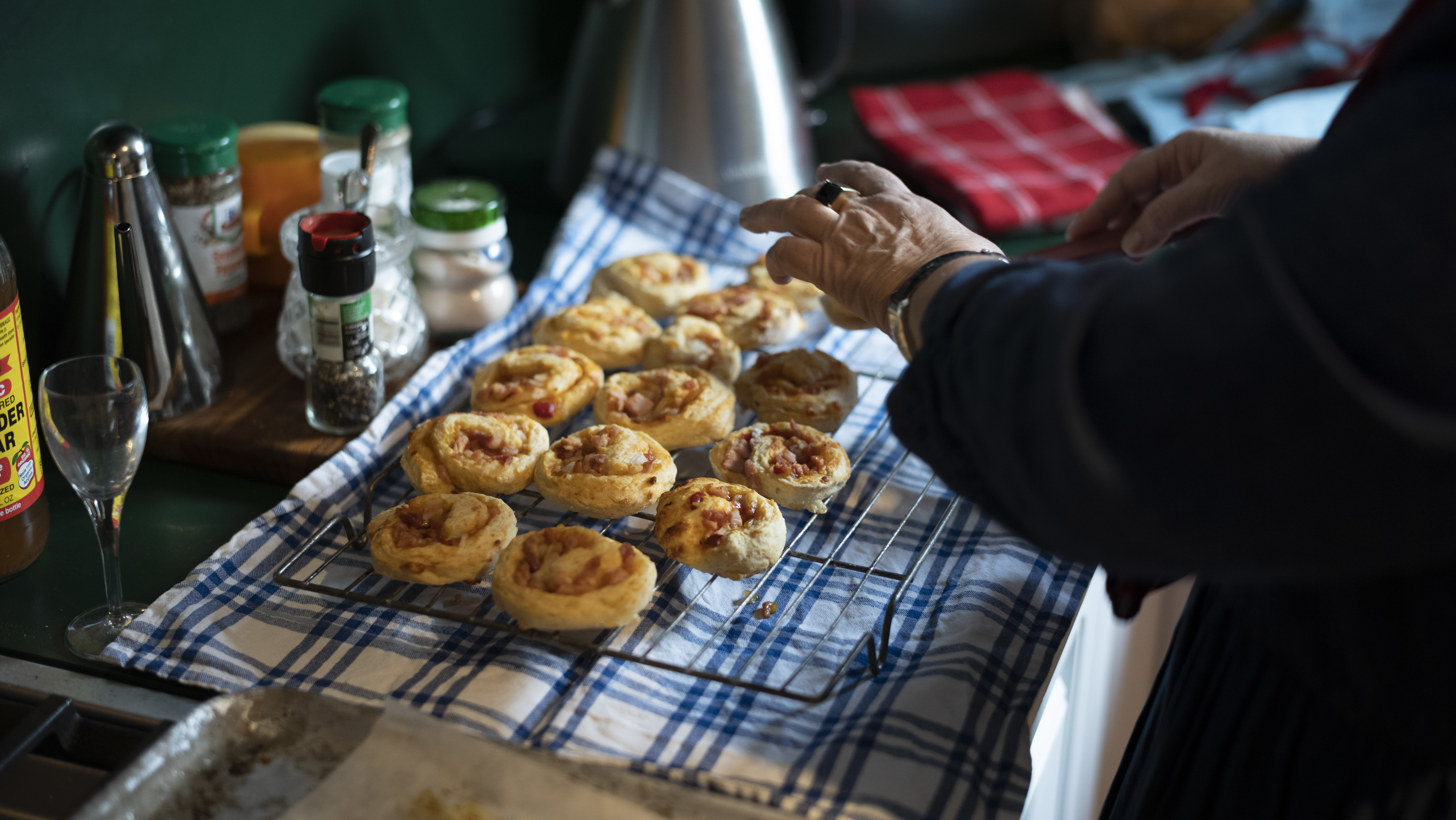
Of course, not all branches are thriving. An ageing membership and a lack of volunteers willing to take on committee positions is crippling some groups in regional areas. Halls have been sold, and longstanding traditions abandoned. Yet others, including urban groups such as the Sydney City CWA, are thriving.
Will the CWA endure for another 100 years? Kat believes it’s possible. “Sitting at the recent conference, thinking about the heritage and the centenary, I looked around at a sea of grey-haired women and wondered about the future,” she says. “But I think there is absolutely a place for the CWA forever. It might just look a little different going forward. The thing with the CWA is it’s evolving. But as much as it’s changing, I think that commitment to serving your community and serving your country is not going to change.”
This commitment to service is certainly strong in Crookwell, NSW, where the dedicated women of Australia’s oldest branch still meet regularly to fundraise for rural causes and meet other community needs. Lillian Marshall, Crookwell CWA president and member for more than 35 years, says the branch is currently hosting cooking lessons for the local community to help people, especially those living alone, to eat more healthily. They’ve also raised money through street sales and raffles to help the rehabilitation of local koala populations after the devastating 2019–20 bushfires. One of Lillian’s most memorable CWA moments was being called on to cater for the emergency service personnel in the thick of those fires.
“We did some training with the police, ambulance, fire brigade and Red Cross before the fires happened in this area. We were told that the one thing we wouldn’t have to do is be called out to the fire truck to cook,” Lillian says. “But you know what? At about half past four in the morning, I got a call from our constable and she said, ‘I’m going to break all the cardinal rules because we need help. The firefighters have been working all night and I need you to get a team out to cater for them.’”
And cater they did, like many branches have done around Australia in times of need – flood, cyclone, fire or drought – working tirelessly from behind the scenes to make endless sandwiches and refreshments to serve their communities.
But tea, scones and fruitcake are only part of the enduring CWA story. Whichever hall or room around the country that members gather in, their collective will to look into social justice matters, raise money for worthy causes, foster friendships and build a sense of community has woven itself into Australia’s cultural fabric forever.

